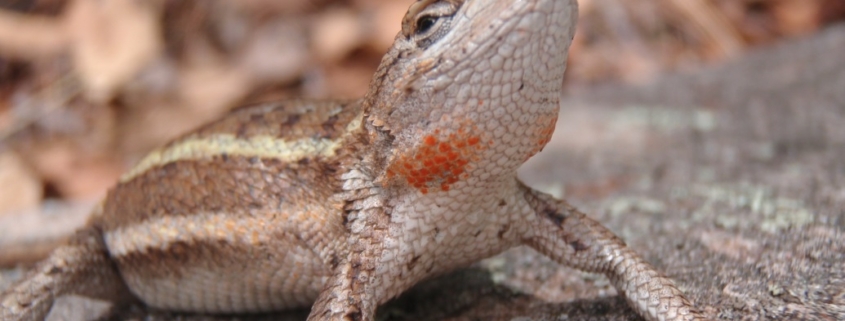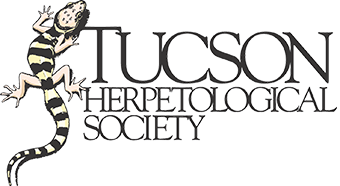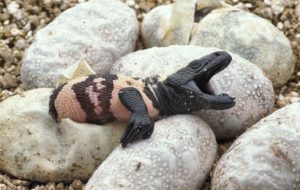
Egg Protection in the Absence of Parental Care:
The gut and reproductive microbiome of Sceloporus lizards
and its role in providing antifungal protection to eggs
Stacey Weiss, PhD
Professor of Biology, University of Puget Sound
Venue information below
 For every organism you see, there are trillions of microbes living in and on them. Many of those microbes are beneficial, with positive influences on host health, behavior, and fitness. However, our understanding of wild microbiomes and how they help their hosts solve ecologically relevant problems is still largely unknown. In lizards, which largely lack parental care, a key risk to reproductive success is loss of eggs to fungal pathogens. My lab group investigates the role of microbes in warding off these fungal nest invaders. Using the Striped Plateau Lizard (Sceloporus virgatus) as our model lizard species, we describe the gut and reproductive microbiome of this species, and employ a variety of methods to experimentally investigate the microbial protection of eggs. Additionally, we use comparative approaches to consider how the microbiome is vertically transmitted, and how it varies across sexes, seasons, generations, and species. Combined, our studies examine a novel hypothesis for the role of the microbes in wild systems, and provide a better understanding of the selective factors influencing lizards and their microbiota.
For every organism you see, there are trillions of microbes living in and on them. Many of those microbes are beneficial, with positive influences on host health, behavior, and fitness. However, our understanding of wild microbiomes and how they help their hosts solve ecologically relevant problems is still largely unknown. In lizards, which largely lack parental care, a key risk to reproductive success is loss of eggs to fungal pathogens. My lab group investigates the role of microbes in warding off these fungal nest invaders. Using the Striped Plateau Lizard (Sceloporus virgatus) as our model lizard species, we describe the gut and reproductive microbiome of this species, and employ a variety of methods to experimentally investigate the microbial protection of eggs. Additionally, we use comparative approaches to consider how the microbiome is vertically transmitted, and how it varies across sexes, seasons, generations, and species. Combined, our studies examine a novel hypothesis for the role of the microbes in wild systems, and provide a better understanding of the selective factors influencing lizards and their microbiota.

Dr. Weiss, combs beaches for Western Fence Lizards with her team of research students at Chambers Bay, Wednesday, July 7, 2021. Weiss’ research usually takes place in Arizona, but due to COVID-19, she had to modify it to more local environments.
Dr. Stacey Weiss, PhD, is a Professor of Biology at the University of Puget Sound in Tacoma, Washington. She received a bachelor’s degree in Biology with an emphasis in Ecology, Evolution, and Behavior from UCLA (1991) and a doctorate in Zoology from Duke University (1999). At Puget Sound, Stacey has received numerous teaching and mentoring awards recognizing her dedication to providing undergraduate students with authentic research experiences. Stacey and her students have explored a variety of questions concerning the behavioral and microbial ecology of Sceloporus lizards. One key research focus is the function and evolution of female-specific ornaments, which Stacey examines within the context of sexual selection theory. Additionally, Stacey and her team are fascinated by the role of the lizard microbiome in providing egg protection in the absence of parental care. They are also linking individual variation in the microbiome to host behavior and physiology, and are conducting comparative studies across temporal, spatial, trans-generational, and host genetic scales. Stacey’s main study subject is the Striped Plateau Lizard (S. virgatus), which she has been studying in the Chiricahua Mountains of southeast Arizona for ~30 years.



